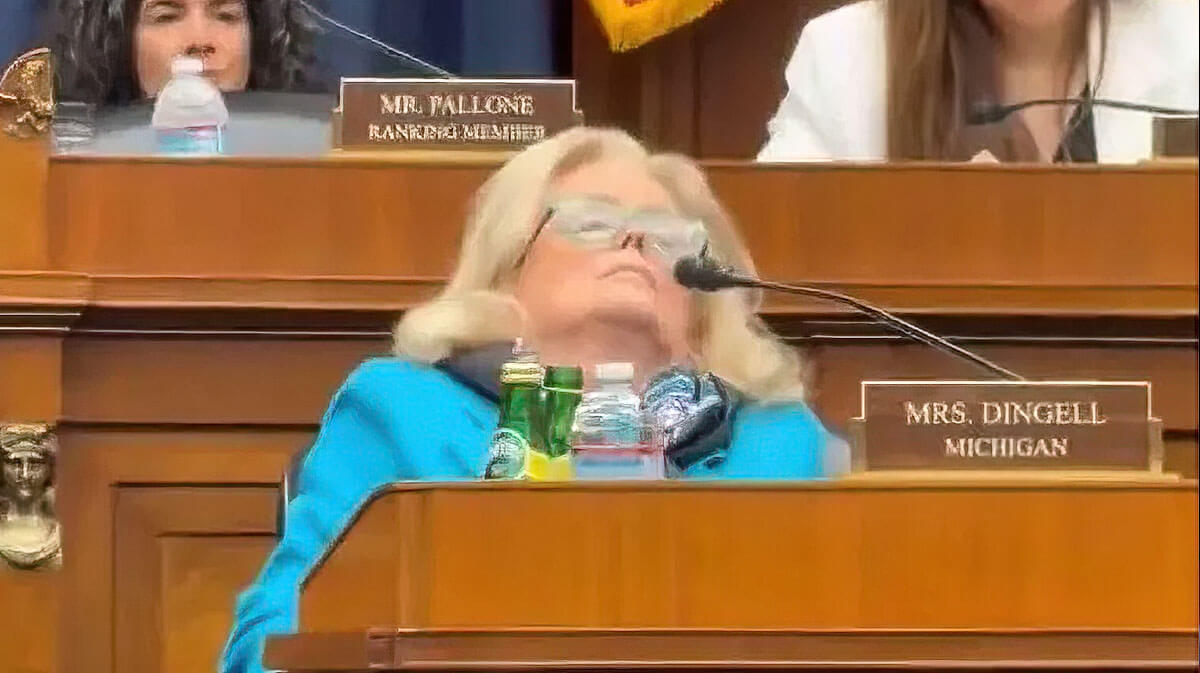A recent incident involving Democratic Congresswoman Debbie Dingell (D-MI) has raised eyebrows and questions about the efficacy of older legislators during critical times on Capitol Hill. On a Wednesday morning, a video captured by journalist Matthew Foldi of the Washington Reporter went viral, showing the 71-year-old congresswoman seemingly asleep during a key congressional hearing. The committee session, which began around 9 a.m. EST, was interrupted by the image of Dingell slumped in her chair, eyes closed, as a witness delivered testimony.
The footage's widespread dissemination on social media platforms has sparked a debate on the physical demands of lawmaking and the capacity of senior members of Congress to meet these challenges. Rep. Dingell, who succeeded her late husband, the historically long-serving Rep. John Dingell, in 2015, has been a fixture in her Michigan district, securing repeated electoral victories, particularly in the liberal-leaning Ann Arbor area. Despite her prominence and experience, the optics of this incident have not been favorable, especially against the backdrop of pivotal budget deliberations.
At present, Congress is embroiled in some of the most consequential budget decisions in recent history. House Republicans, led by Speaker Mike Johnson (R-LA), are racing against a May 31 deadline to pass significant tax reform legislation eagerly anticipated by President Donald Trump. As part of this fiscal overhaul, Republicans have proposed substantial cuts to Medicaid, which have been met with fervent opposition from Democrats. In a poignant display of the human impact of these proposed cuts, Rep. Lori Trahan (D-MA) invited Medicaid recipients to testify before Congress, underscoring the emotional and practical implications of the budgetary choices at hand.
The viral video of Rep. Dingell has reinvigorated discussions concerning the aging demographic of Congress and the suitability of lawmakers in their 70s and beyond to keep pace with the demands of modern politics. Critics on social media were quick to point out the discrepancy between the exigencies of congressional service and the behavior exhibited in the video. Bottles of Perrier and still water on Dingell's desk became unlikely symbols of the incident, with one social media user quipping, “Where’s Mike Lindell when you need him.”
This episode is not unique to the Democratic Party; a similar video showcased Rep. Blake Moore (R-UT) being nudged awake by a colleague to cast a vote during an early session, indicating that fatigue in the halls of Congress is a bipartisan issue. Nevertheless, the situation has led some to call for age or term limits to ensure that representatives are fully capable of fulfilling their legislative responsibilities.
Supporters of Rep. Dingell argue that the intense pressures and long hours of policymaking can be draining for any lawmaker, regardless of age. Dingell herself remains a staunch advocate for Medicaid, drawing on her considerable experience and influence to defend the program. However, the recent incident has undeniably prompted a broader contemplation about the physical and mental rigors associated with congressional duties and the need for potential reforms to safeguard the institution's vitality and responsiveness.





